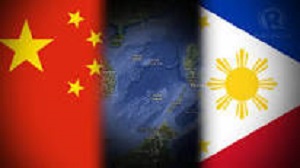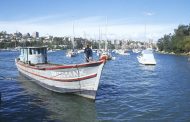Thắng Lợi Bước Đầu Của Philippines Trong Vụ Kiện Trung Quốc
Tòa trọng tài quốc tế ở La Haye, Hà Lan, mới ra phán quyết chống Trung Quốc và ủng hộ Philippines, theo đó đồng ý xem xét vụ kiện Bắc Kinh của Manila liên quan tới biển Đông.
Tòa trọng tài Thường trực hôm qua, 29/10, đã ra phán quyết nói rằng tòa này có đủ thẩm quyền xét xử vụ tranh chấp chủ quyền ở biển Đông giữa Philippines và Trung Quốc.
Đơn kiện của Philippines cho rằng Trung Quốc đã hành động trái với Công ước Liên Hiệp Quốc về luật biển (UNCLOS).
Trung Quốc từng tuyên bố rằng đây là tranh chấp về chủ quyền các hòn đảo trên biển, và điều đó vượt ra ngoài thẩm quyền của tòa.
Tòa án cho biết sẽ cân nhắc 7 trong số 15 khiếu nại của Philippines đối với Trung Quốc, trong khi không xem xét 7 khiếu nại khác, đồng thời muốn làm rõ với Manila về một việc.
Philippines đệ đơn kiện lên Tòa trọng tài Thường trực năm 2013. Tòa án dự kiến sẽ ra phán quyết cuối cùng vào năm sau.
Một quan chức ngoại giao cấp cao của Trung Quốc hôm nay đã lặp lại quan điểm rằng Bắc Kinh sẽ không tham gia vào vụ xử cũng như không chấp nhận phán quyết cuối cùng của tòa.
Luật sư chính của Philippines, Florin Hilbay, hoan nghênh quyết định của tòa, đồng thời gọi đó là “một bước tiến lớn trong nỗ lực tìm một giải pháp ôn hòa và bất thiên vị giữa các bên cũng như làm rõ quyền lợi của họ theo UNCLOS”.
‘Quyền lợi của Việt Nam’
Washington cũng đã hoan nghênh phán quyết, theo một quan chức quốc phòng cấp cao.
Việt Nam cũng từng lên tiếng ‘bày tỏ lập trường’ đối với vụ Philippines kiện Trung Quốc ra Tòa trọng tài.
Phát ngôn viên Bộ Ngoại giao Việt Nam Lê Hải Bình cuối năm ngoái cho biết: “Để bảo vệ các quyền và lợi ích pháp lý của mình ở Biển Đông có thể bị ảnh hưởng bởi vụ kiện Trọng tài biển Đông, Việt Nam đã bày tỏ với Tòa trọng tài về lập trường, quan điểm của mình đối với vụ kiện và đề nghị Tòa trọng tài quan tâm đến các quyền và lợi ích pháp lý đó của Việt Nam”.
Trung Quốc lập tức lên tiếng kêu gọi Việt Nam tôn trọng chủ quyền của Bắc Kinh.
Phán quyết vừa kể của tòa được đưa ra 2 ngày sau khi Hoa Kỳ điều một tàu chiến tới phạm vi 12 hải lý gần một trong các hòn đảo nhân tạo mà Trung Quốc xây dựng ở Trường Sa.
Bất chấp phản đối của Bắc Kinh, Washington tuyên bố sẽ tiếp tục đưa tàu tới bất kỳ đâu mà luật pháp quốc tế cho phép.
30.10.2015
Theo VOA, Reuters
Manila filed the case in 2013 to seek a ruling on its right to exploit the South China Sea waters in its 200-nautical mile exclusive economic zone (EEZ) as allowed under the United Nations Convention on the Law of the Sea (UNCLOS).
The Hague-based Permanent Court of Arbitration rejected Beijing’s claim that the disputes were about territorial sovereignty and said additional hearings would be held to decide the merits of the Philippines’ arguments.
China has boycotted the proceedings and rejects the court’s authority in the case. Beijing claims sovereignty over almost the entire South China Sea, dismissing claims to parts of it from Vietnam, the Philippines, Taiwan, Malaysia and Brunei. [nL3N0ZJ1G1]
The tribunal found it had authority to hear seven of Manila’s submissions under UNCLOS and China’s decision not to participate did “not deprive the tribunal of jurisdiction”.
China, facing international legal scrutiny for the first time over its assertiveness in the South China Sea, had no immediate comment.
The Philippine government welcomed the decision.
Solicitor General Florin Hilbay, Manila chief’s lawyer in the case, said the ruling represented a “significant step forward in the Philippines’ quest for a peaceful, impartial resolution of the disputes between the parties and the clarification of their rights under UNCLOS”.
Bonnie Glaser, a South China Sea expert at the Center for Strategic and International Studies in Washington, called the outcome “a major blow for China given that the opinion explicitly rejects China’s arguments that … the Philippines has not done enough to negotiate the issues with China.”
Related Coverage
China repeats will not accept South China Sea arbitration case
The United States, a treaty ally of the Philippines that this week challenged Beijing’s pursuit of territorial claims by sailing close to artificial islands China has constructed in the South China Sea, welcomed the decision, according to a senior U.S. defence official. [nL1N12S00F]
“It shows that judging issues like this on the basis of international law and international practice are a viable way of, at a minimum, managing territorial conflicts if not resolving them,” the official said, speaking on condition of anonymity.
Another U.S. official said the tribunal’s decision undercut China’s claims under the so-called nine-dashed line that takes in about 90 percent of the 3.5 million sq km (1.35 million sq mile) South China Sea on Chinese maps. This vague boundary was officially published on a map by China’s Nationalist government in 1947 and has been included in subsequent maps under Communist rule.
“You can’t say that the nine-dashed line is indisputable anymore because by acknowledging jurisdiction here the court has made clear that there is indeed a dispute,” said the official, who asked not to be named. “To my mind, this announcement drives a stake through the heart of the nine-dash line.”
The court’s rulings are binding, although it has no power to enforce them and countries have ignored them in the past.
“QUESTIONABLE CLAIMS”
Nevertheless, the decision keeps the spotlight on China.
“Today’s ruling is an important step forward in upholding international law against China’s attempts to assert vast and, in my view, questionable claims in the South China Sea,” said John McCain, chairman of the U.S. Senate’s armed services committee.
On Thursday during a visit to Beijing, German Chancellor Angela Merkel suggested China go to international courts to resolve its rows over the South China Sea. [nL8N12T2WQ]
In a position paper in December, China argued the dispute was not covered by UNCLOS because it was ultimately a matter of sovereignty, not exploitation rights.
UNCLOS does not rule on sovereignty but it does outline a system of territory and economic zones that can be claimed from features such as islands, rocks and reefs.
The court said it could hear arguments including one contending that several South China Sea reefs and shoals were not important enough to base territorial claims on.
On seven other submissions, including that China had violated the Philippines’ sovereign right to exploit its own territorial waters, the court said it would reserve judgment about jurisdiction until it had decided the merits of the case.
No date has been set for the next hearings.
The Permanent Court of Arbitration was established in the Netherlands in 1899 to encourage peaceful resolution of disputes between states, organisations and private parties. China and the Philippines are among its 117 member countries.
(Reporting by Anthony Deutsch and Toby Sterling; Additional reporting by David Brunnstrom, Yeganeh Torbati and Arshad Mohammedin Washington and Manuel Mogato in Manila; Editing by Dean Yates and Alex Richardson)














































